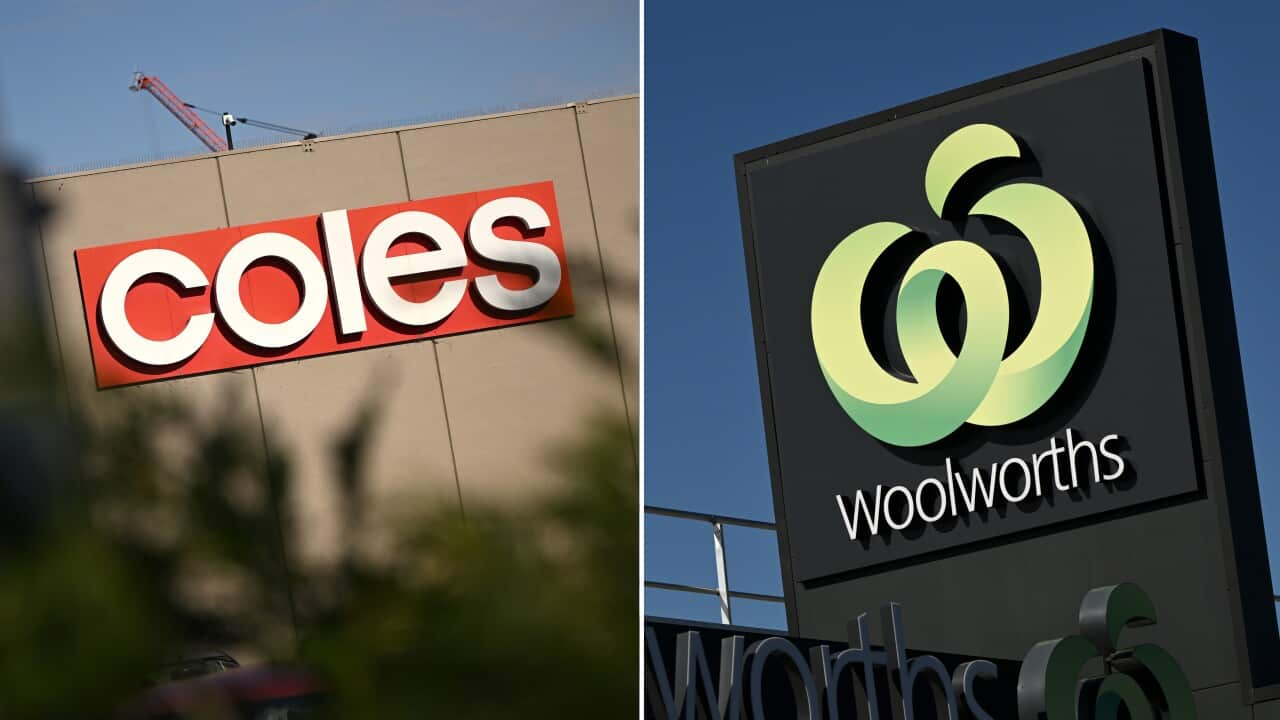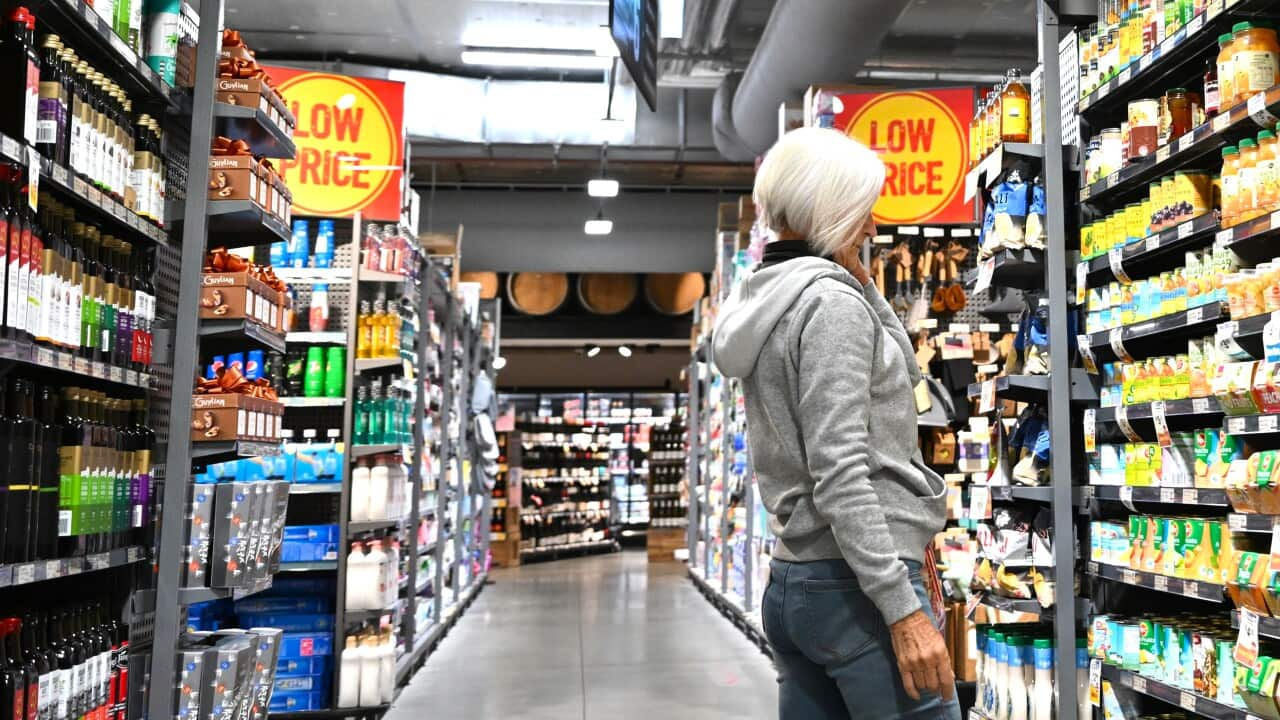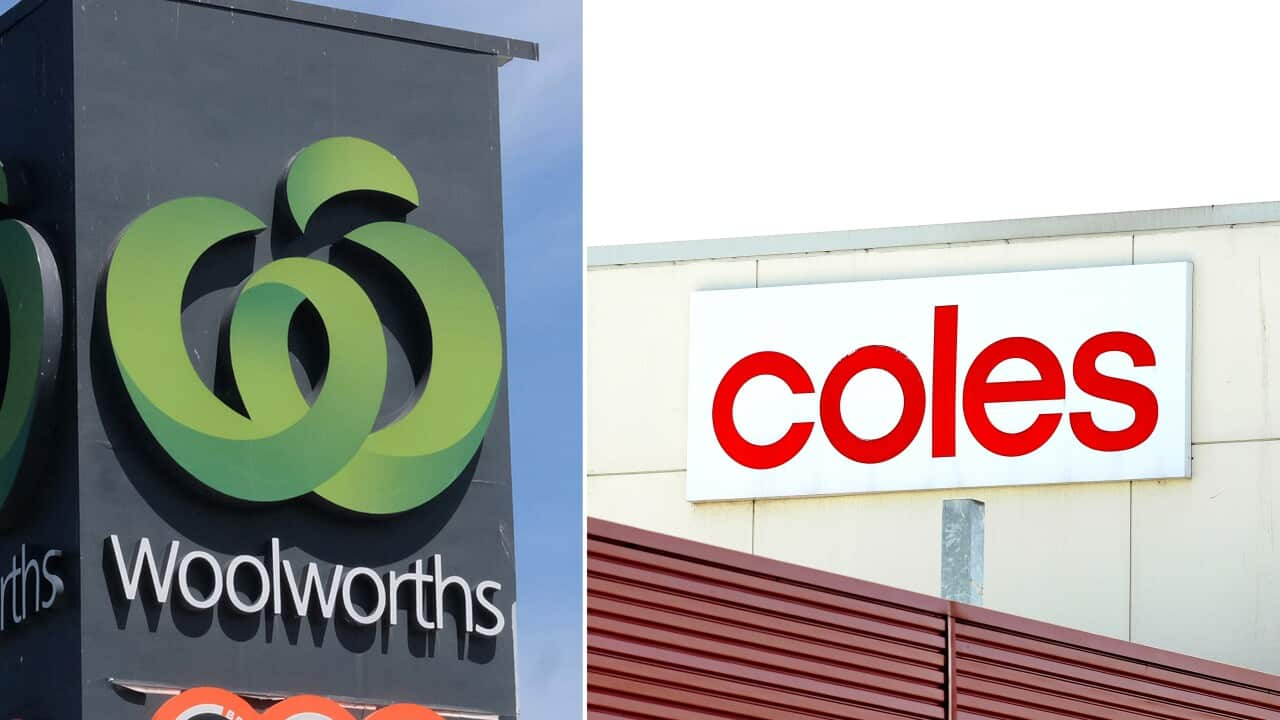As Prime Minister Anthony Albanese and Opposition leader Peter Dutton ramp up their election campaigns,
The cost of groceries has been a particular focus of attention and was the subject of a carried out by the Australian Competition and Consumer Commission (ACCC).
The inquiry examined pricing practices, profit margins, and Coles' and Woolworths' power in the industry.
In its report, the ACCC did not find any evidence of price gouging.
Despite this, Albanese announced on Sunday that if re-elected, Labor will introduce legislation to make price gouging illegal.
In contrast, Dutton has suggested the Coalition would enforce supermarket divestiture powers to address anti-competitive behaviour.
Supermarkets respond to price gouging accusations
Coles and Woolworths have repeatedly rejected claims of price gouging, despite prices rising 24 per cent in the last five years.
In a statement released on Sunday, a Coles spokesperson said these prices largely reflected the increased cost of doing business.
"What's needed are measures that tackle the real factors driving higher grocery prices, which are rising costs such as energy, fuel, labour, insurance, production, freight and distribution," they said.

Woolworths has rejected claims of price gouging. Source: AAP / Darren England
"We recognise our customers have experienced several years of significant inflation, with an escalation in the cost of mortgages, rent, transport, insurance, energy, food and many other household essentials."
According to the spokesperson, Woolworths Group has already taken action on many of the ACCC report’s recommendations to improve the experience and transparency for customers and suppliers.
Labor's plan to ban price gouging
While the ACCC found Australian supermarkets are among the most profitable globally, the supermarket giants have argued their profit margins are comparable to their peers in countries including Canada, the UK and the US.
Laws to protect customers from companies engaging in price gouging already exist in the UK, European Union and dozens of states in the US.
Albanese said that if Labor wins the 3 May federal election, Labor would introduce similar laws in Australia.
"We will introduce legislation making price gouging illegal by the end of this year," he said on ABC's Insiders program.
"What we want to make sure is that they (supermarkets) know that they're being watched. They know that the government is prepared to take strong action and crack down."
Finance Minister Katy Gallagher said price gouging laws are a "missing part" of Australia's competition laws.
"We think that this is something that’s worked overseas, it’s in place overseas, and this is another tool in the toolkit for the ACCC to cover off concerns around excessive prices in supermarkets," she told ABC Radio National Breakfast on Monday.
While Gallagher acknowledged the supermarket inquiry did not find any evidence of price gouging, she said it had found examples of prices increasing considerably, and it also highlighted the increasing market share of major supermarkets.
"I wouldn’t say that the ACCC report gave the supermarkets a clean bill of health, I don’t think it did that at all," she said.
Specific details of the government policy — including how it would determine price gouging — have not yet been released.
A task force would be set up to advise on introducing an excessive-pricing regime for supermarkets to be policed by the consumer watchdog.
The group would include Treasury, the consumer watchdog and other experts who would consult and report to the federal government within six months.
Are supermarkets being unfairly targeted?
The ACCC report is not the only investigation into supermarket price gouging.
The Australian Council of Trade Unions, a Senate select committee, an independent review for Treasury and state parliamentary inquiries in Queensland and South Australia have all examined the practice of price gouging.
While some claim it does exist in the supermarket sector, others have found no evidence.
Professor Gary Mortimer, professor of marketing and consumer behaviour at the Queensland University of Technology Business School, said he believes supermarkets are being unfairly targeted.
"It's disappointing that both political parties — and I would include the Greens here — have decided to focus on supermarkets rather than the more significant and complex social and economic issues facing the Australian public," he said.
"When you're a minister and you are facing issues such as youth crime, housing crisis, rental crisis, hospital ramping, a teacher shortage — those issues are significantly [more] challenging to fix — so it's easier to apply [a] distraction strategy and focus on the price of a chocolate bar. It gets better cut through."
Mortimer said he believes rising costs of supermarket goods are largely due to the supermarkets' 'input costs' (costs incurred to make a product) and paying more for fuel and freight, wholesale goods, wages, and licences.
Laws against price gouging would be unlikely to impact grocery prices or help shoppers unless these costs are addressed, he said.
"They can certainly put legislation in place to outlaw price gouging, but if price gouging is not happening, no penalties will be awarded and it won't actually bring prices down," he said.
"What will bring prices down is a lower corporate tax rate, field subsidies, less red tape, less bureaucracy, less input costs."
— with additional reporting from the Australian Associated Press





